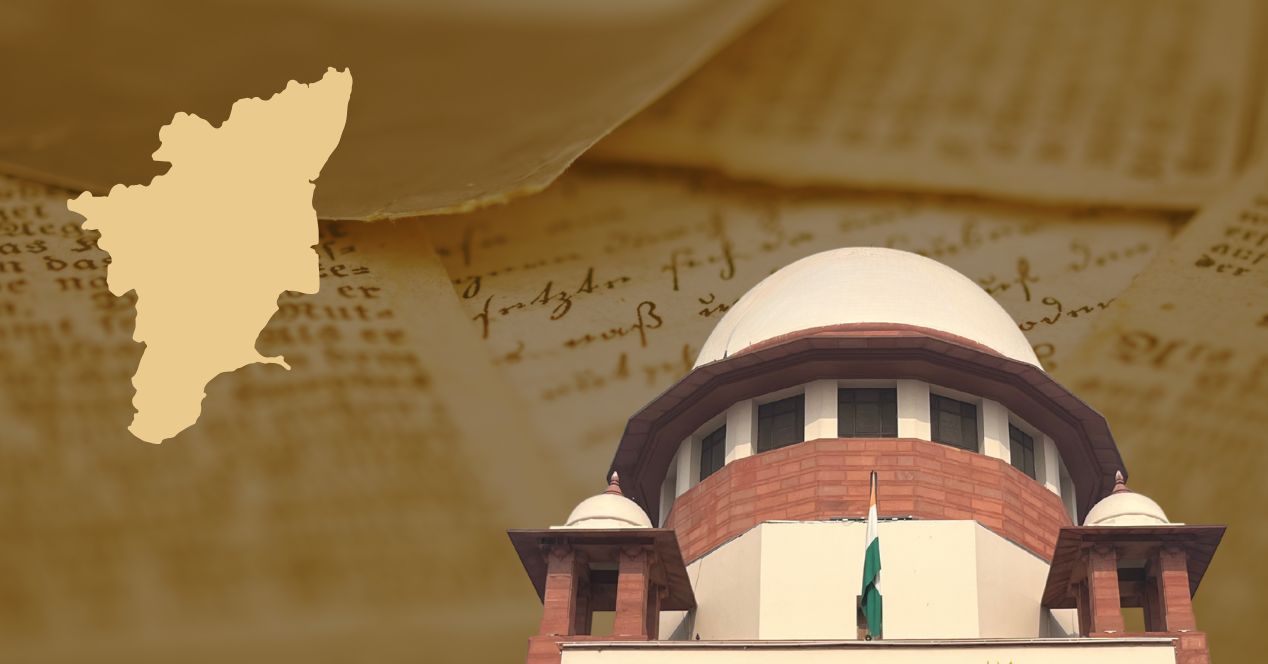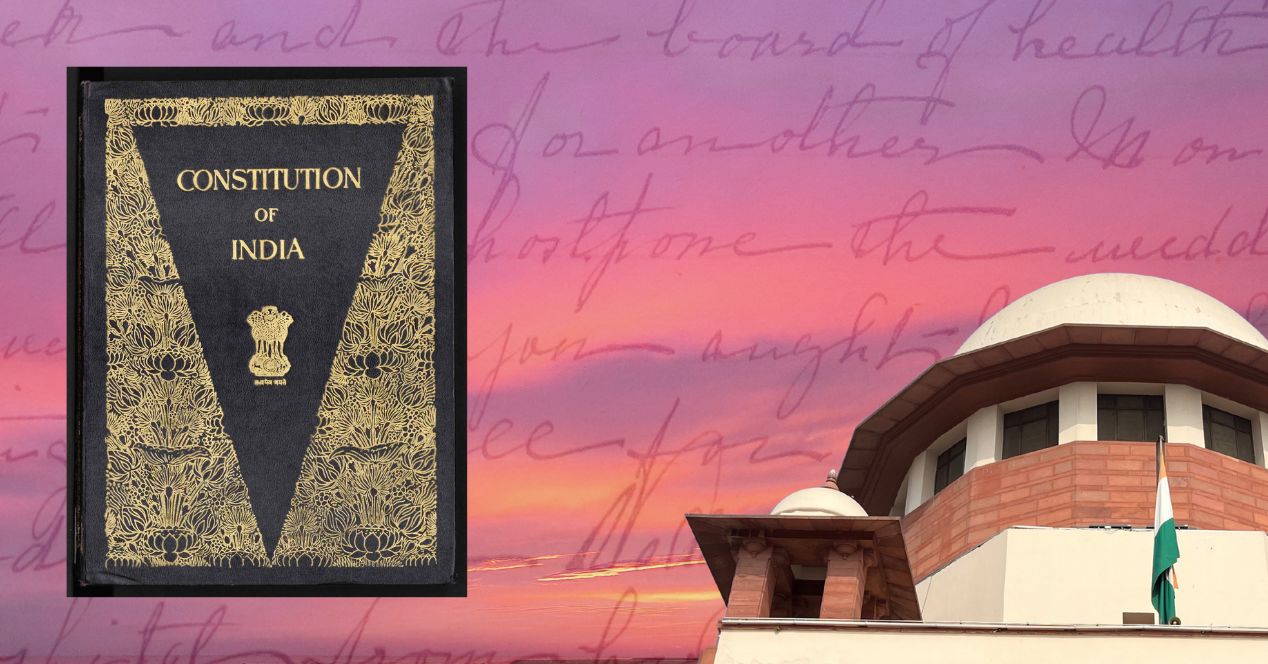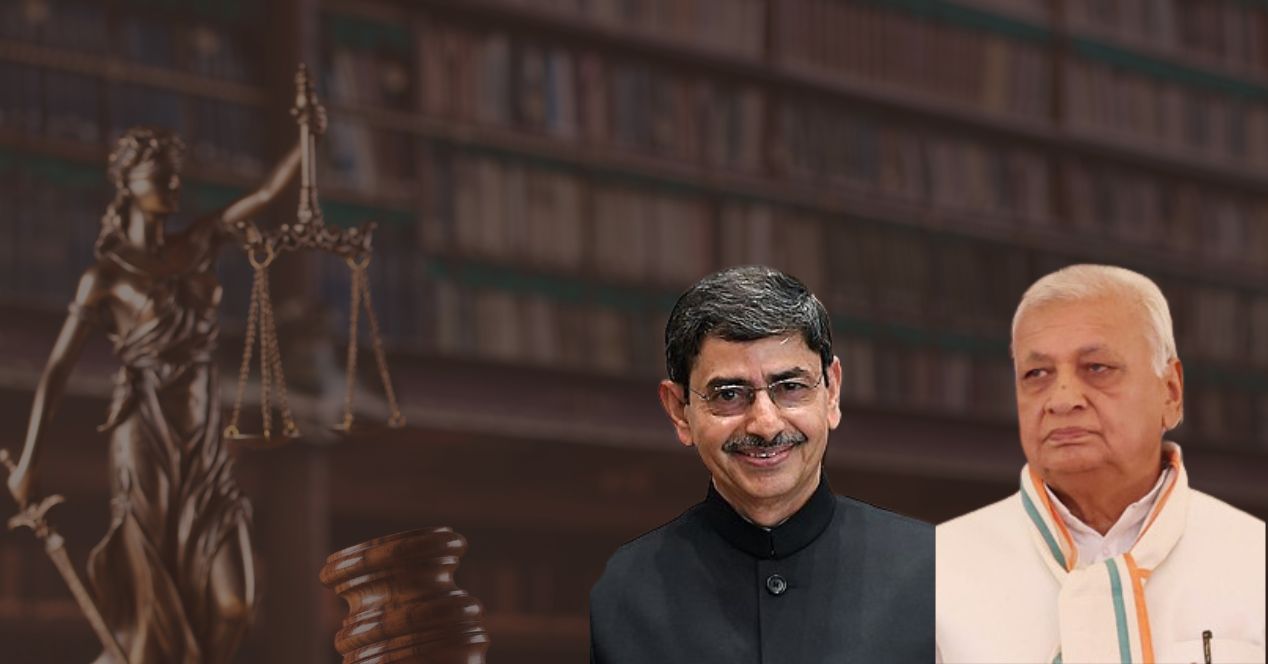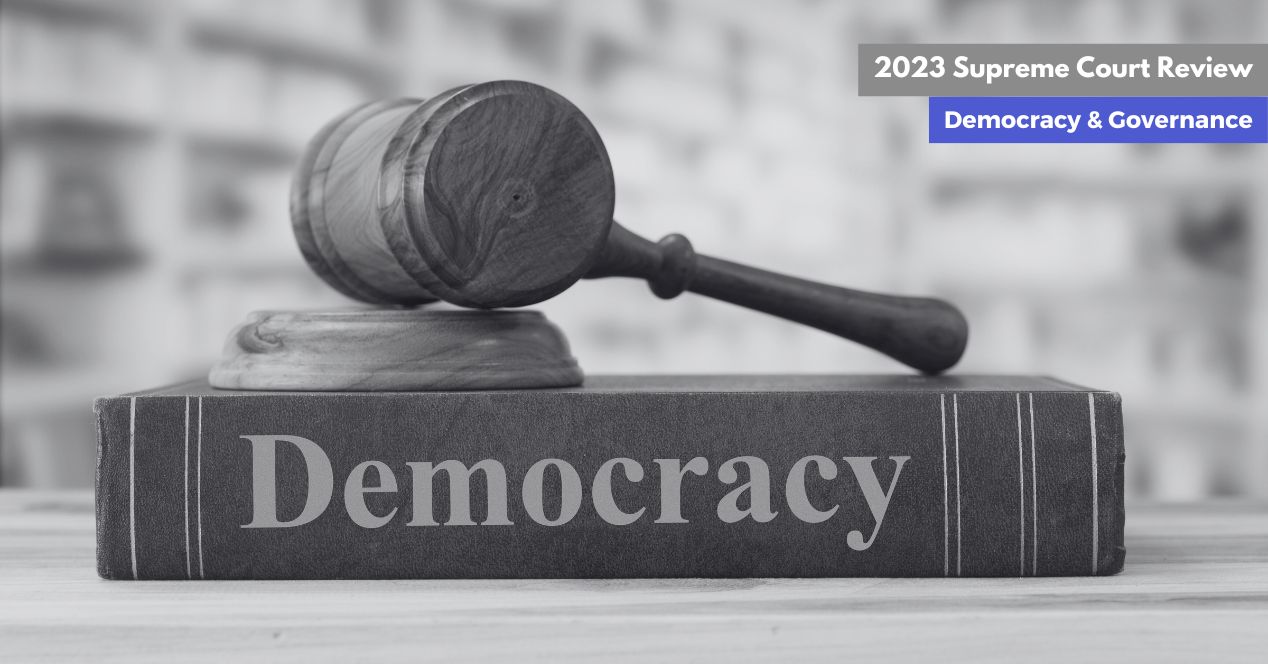Analysis
Almost all questions in presidential reference have been answered in TN Governor Judgement
The reference to the SC amounts to relitigating questions on the scope of presidential and gubernatorial powers around assent to state Bills
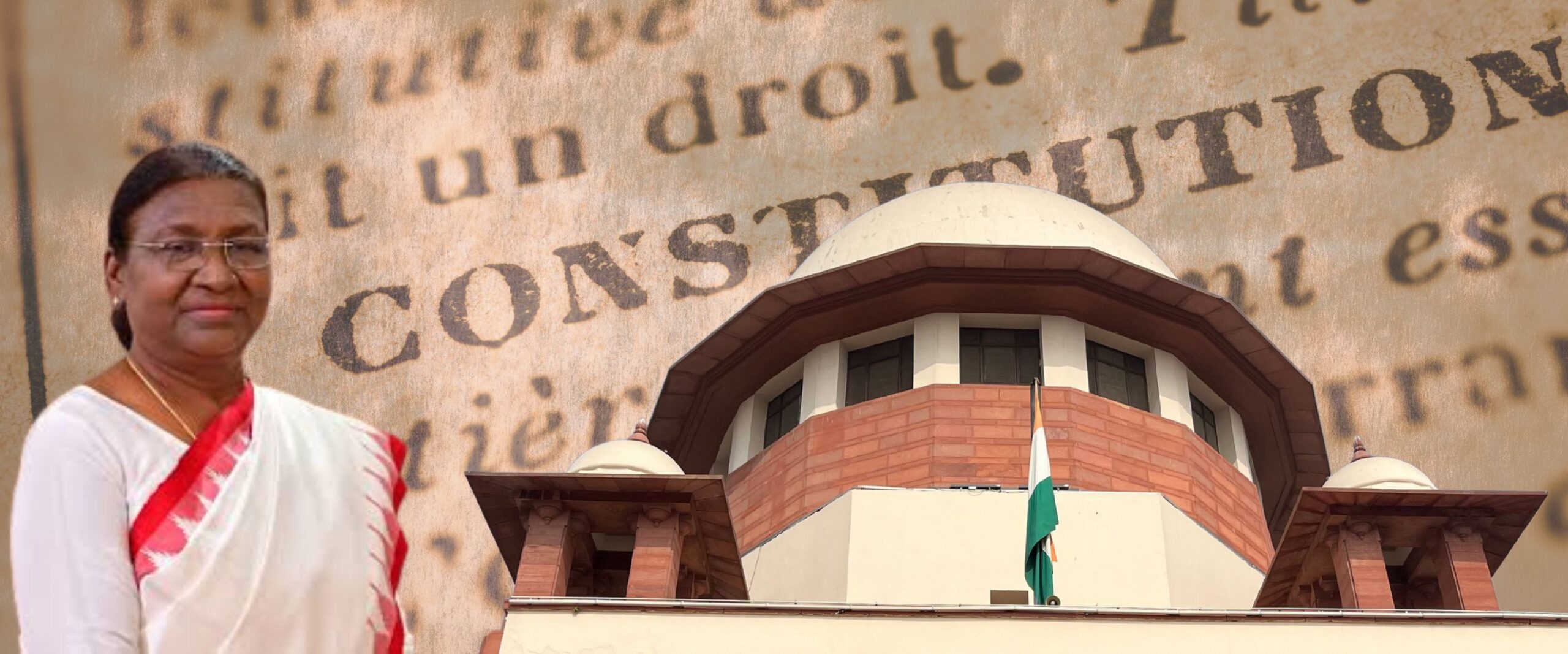
A month after the Supreme Court decided the dispute between the State of Tamil Nadu and the Governor of the state, the President of India referred 14 questions to the Court under its advisory jurisdiction in Article 143.
Of the 14 questions, seven relate to the exercise of powers by the Governor under Article 200, which is concerned with the granting of gubernatorial assent to laws passed by state legislatures.
Three questions are about a similar exercise of power by the President. There are two questions about Article 142, under which the Supreme Court has wide powers to do “complete justice”. One question is about whether a Bench must first decide whether an issue involves a ‘substantial question of law’ and must therefore be sent to a Constitution Bench. The final question seeks the Court’s advice on whether state governments can invoke any jurisdiction other than Article 131 in disputes with the central government.
In this article, I examine whether the questions referred by the President overlap with the issues already adjudicated and decided by the Supreme Court on 8 April 2025 in State of Tamil Nadu v Governor of Tamil Nadu (referred to as TN Governor subsequently). In this case, the Court addressed the following issue: “Whether a Governor can indefinitely withhold assent to Bills duly passed by a State Legislature, or if the Governor is constitutionally obligated to act within a reasonable time and in accordance with constitutional conventions.”
Each section below is subtitled with a question raised by the President in the reference dated 13 May 2025.
What are the options available to the Governor under Article 200?
This question has already been answered by the Court in its Judgement in Paragraphs 196, 198 and 206 to 211. There are three courses available to the Governor: (a) assenting to the Bill; (b) returning it to the legislature for reconsideration; and (c) reserving it for the President’s consideration. The Court made it clear that the Governor cannot exercise a pocket veto and sit on a Bill indefinitely.
One of the situations addressed by the Court was whether a Governor can reserve a Bill for consideration of the President when it is returned to him after being reconsidered (on his advice) by the Assembly. The Court found that this decision to send Bills to the President is subject to judicial scrutiny.
In the present case, the Governor had sent back 10 Bills to the Assembly without specifying any reasons or making any recommendations for amendments. The Assembly repassed the Bills without any material changes. The Governor sent these Bills to the President. The Court relied on its decision in State of Punjab v Principal Secretary to the Governor of Punjab (2023) and found that the Governor could not have reserved the Bills for presidential reconsideration, “particularly when the Governor sent back the Bills without any message on an earlier occasion.”
The Court also addressed the question of the time limit within which a Governor or President must act. It was unequivocal in finding that not acting on a Bill for a prolonged period “virtually vests the Governor with the power of pocket veto” and could not be permissible under the constitutional scheme (Paragraph 225). Despite there being no time limit prescribed under Article 200, the Court prescribed the following timelines for Governors to act:
- One month in case of withholding assent
- Three months in case of withholding assent contrary to the advice of the State Cabinet
- One month in case of Bills presented for reconsideration
Is the Governor bound by the advice of the Council of Ministers?
This question was conclusively answered by the Court in the Judgement in Paragraphs 318 and 319. The Court noted that the general rule is that the Governor does not have any discretion under Article 200 and has to mandatorily abide by the advice of the Council of Ministers.
There are only three exceptions to the rule. Two are in the first (returning Bill to the Assembly for reconsideration) and second (reserving Bill for the President if the High Court’s powers could be endangered) provisos to Article 200. The third exception was judicially developed in MP Special Police Establishment v State of MP (2004). The Governor can use his discretion to find that a Bill is “of a nature that would undermine the Constitution by placing the fundamental principles of a representative democracy at peril.”
Can the Governor’s exercise of discretion be judicially reviewed?
In the Judgement, the Court answered this question in the affirmative in Paragraph 348. In doing so, it diverged from the opinion expressed by a coordinate Bench in B.K. Pavitra v Union of India (2019). Though there are exceptional cases under Article 200 under which a Governor may exercise discretion (as detailed in the previous section), the Court noted that it would be open for it to determine the “legality and propriety” of the decision. If the exercise of such discretion would be excluded from judicial scrutiny, the Court felt that it “would militate against the fundamental constitutional principle that exercise of all power must be within the confines of the Constitution.”
The President has also asked the Court to opine on whether the immunity granted to Governors under Article 361 barred judicial review of any action they take under Article 200. The Bench, in Para 333, relied on the Court’s observation in Rameshwar Prasad v Union of India (2006) to hold that there was nothing in the personal immunity provisions of Article 361 to fetter the judicial review of the actions of the Governor.
Can the President’s exercise of discretion be judicially reviewed?
This question in the reference has also been answered in detail in the Judgement. If a Bill pertains to a constitutional provision and primacy has been given to the Union government, the Court said that there are only limited grounds of judicial review of the President’s decision under Article 201, including arbitrariness, mala fides, etc. Where the Bill is on a matter where the state legislature has primacy, then the President’s decision is completely justiciable without “any impediments imposed by the doctrine of political thicket.”
Relatedly, the President has also asked the Supreme Court whether judicial orders can (a) impose a timeline for response in the absence of constitutional prescription; and (b) lay down the manner in which power may be exercised under Article 201. The Court’s Judgement addressed these issues in detail. It acknowledged that one of the ways in which Article 201 is different from Article 200 is that it does not place an obligation on the President to grant assent to a Bill which is returned after reconsideration by the state legislature.
Yet, the Bench found that the provision doesn’t contemplate “inaction” on the part of the President. To support its point, the Bench relied on office memoranda issued by the Home Ministry in February 2016, which deal with the expeditious disposal of Bills reserved for the presidential assent. It also cited the findings of the Sarkaria and Punchhi Commissions on centre-state relations, which stressed the need for the executive to respond to references under Article 201 in a prompt and comprehensive manner.
The Bench relied on the time limit clearly stipulated in the office memoranda to conclude that the President is required to decide within three months. In case there was a delay beyond this period, the President should record reasons for the delay—‘simpliciter withholding’ won’t do.
Is the President required to seek the SC’s advice on a reserved Bill?
The Bench in TN Governor has addressed this reference question in Paragraph 410. The judges were of the view that a Bill appearing to be unconstitutional must be assessed “by a judicial mind.” The Judgement noted that the Sarkaria and Punchhi Commissions had recommended the President seek the opinion of the Court under Article 143 in respect of Bills that appear “patently unconstitutional.”
The President is “not just precluded but constitutionally expected” to refer the question of the vires of a Bill to the Supreme Court. When a Bill attracts one of the exceptional situations where the Governor may exercise discretion and reserve it for the President’s consideration, it is not open for the President to withhold assent without ascribing reasons. In such a situation, the Judgement said, the “ideal course” would be for the President to get a legal opinion from the Court under Article 143 and only then grant or withhold assent.
Can the Court review exercise of discretion and the contents of a Bill before it becomes law?
Though there was no issue framed specifically on these lines in the TN Governor, the Bench seems to have answered these questions in its Judgement. It made it clear that the discharge of functions by the President or the Governor as constitutional and formal heads is subject to judicial review.
On the point of contents of a Bill, the position emerging clearly from the Judgement is that the Court can provide its opinion on the contents of a Bill before it becomes law. Paragraph 411 notes that the President can consult the Court at “any time” that “a question of law or fact has arisen.” As mentioned in the section above, the President is “expected” to refer the question of the vires of a Bill to the Court.
Since the constitutionality of a Bill falls within the exclusive domain of the courts, the opinion rendered by the Court under Article 143 “holds high persuasive value and should ordinarily be accepted by the legislature and the executive.” (Paragraph 420). The fact that the Court’s advisory opinion is not binding “does not undermine the principles used by the Court to determine constitutionality.”
According to the Judgement, there is only one reason why the legislature or executive may not heed the opinion of the Court. That would be when the grounds on which a Bill is reserved “are not purely legal and may involve certain policy considerations that outweigh the issue of constitutionality.” In such cases, the Court said, the President must record cogent reasons and material for withholding assent.
Even otherwise, in a reference under Article 143 relating to the Cauvery Water Dispute (1991), the Court clarified that under this Article, there is no appellate jurisdiction, nor can it be vested in the President. In another reference in 2012, relating to the Natural Resources Allocation case (2012), an objection was raised that Article 143 was being used to unsettle the 2G judgment. However, the then Attorney General gave a clear statement that the Government was not questioning the correctness of the direction in the 2G case.
Conclusion
As is clear now, the scheme of the reference substantially overlaps with the Judgement in TN Governor. As part of its adjudicatory jurisdiction, the Supreme Court has delivered a decision that is final and binding.
Questioning a binding decision of the Court through the Article 143 route undermines the judicial process and the system of checks and balances within our federal structure. The only permissible route, in the circumstances, is to invoke the Court’s review jurisdiction under Article 137. Additionally, those unhappy with the TN Governor decision can wait for a similar issue to arise as part of the adjudicatory jurisdiction of the Court. They can question the correctness of the decision in TN Governor in that case and seek a reference to a larger Bench.
As for the question in the President’s reference about the powers of the Court under Article 142, it’s important to note that the Court does not invoke the power casually or routinely. Excessive action or inaction by parties has sometimes compelled the Court to exercise this jurisdiction. In TN Governor as well, the Supreme Court recorded factual aspects in detail and discussed the circumstances under which it was exercising its power under Article 142 to deem the passage of Bills by the Governor.
It is difficult for the Court to contemplate all the circumstances of fact under which it will be called on to exercise its power under Article 142. That’s why issuing general guidelines for the future is neither prudent nor adequate. The President’s reference asks if “Article 142 extends to issuing directions/passing orders which are contrary to or inconsistent with existing substantive or procedural provisions of the Constitution or law in force.” In my view, it’s impractical to expect the Court to answer this question, especially when there are laws which are, by design, broad on the surface and which may be misused by authorities in practice. Should the Supreme Court not consider exercising power under Article 142 in such circumstances?
The one question in the reference that I believe deserves to be considered by the Court is the 14th and final one, about remedies for states beyond Article 131 to resolve disputes with the Union. It’s an especially pressing question, given the trend of state governments approaching the Supreme Court to resolve issues arising from divergent stands taken by themselves and the Union. Given that the federal structure is a basic feature of the Constitution, it is an issue worth seeking clarity on. It’s important that the constitutional prerogatives of state governments be preserved for the sake of the social, linguistic, religious and financial diversity of our country.
M.R. Shamshad, a Senior Advocate, practises in the Supreme Court of India.

